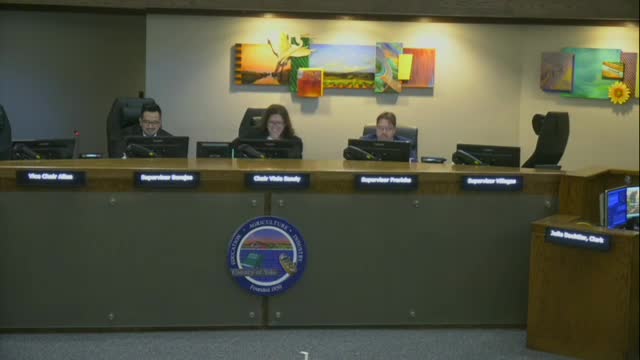Article not found
This article is no longer available. But don't worry—we've gathered other articles that discuss the same topic.
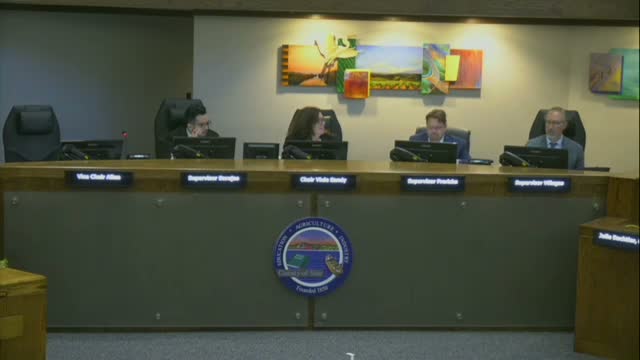
County assessment finds farmworkers have low pay, food and housing stress; supervisors ask staff to develop housing plan

Board waives first reading of tobacco retailer permit amendments; updates clarify coupons, decoy operations and new products
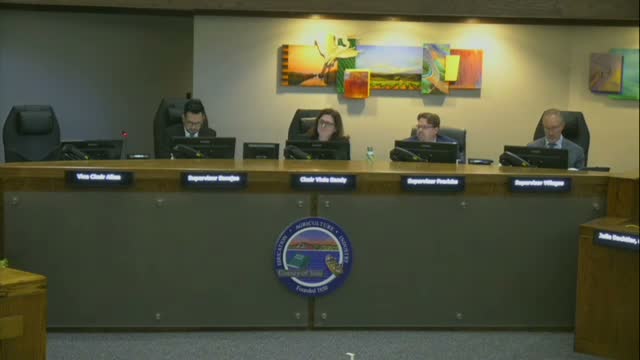
Yolo County adopts budget principles and calendar; staff warns federal funding pause could affect programs
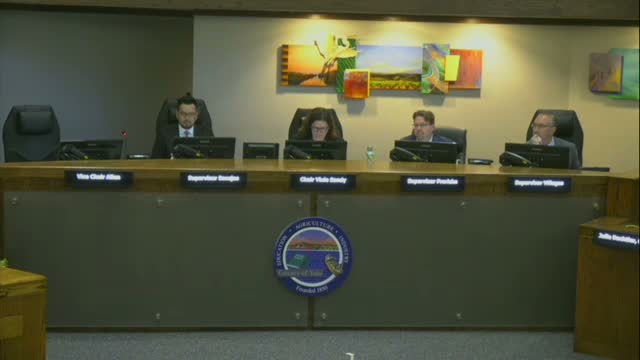
Caregivers, IHSS advisory committee urge Yolo supervisors to fund after‑hours hotline, keep virtual access options

Yolo County supervisors approve budget principles and calendar as staff warns modest revenue growth and rising labor costs
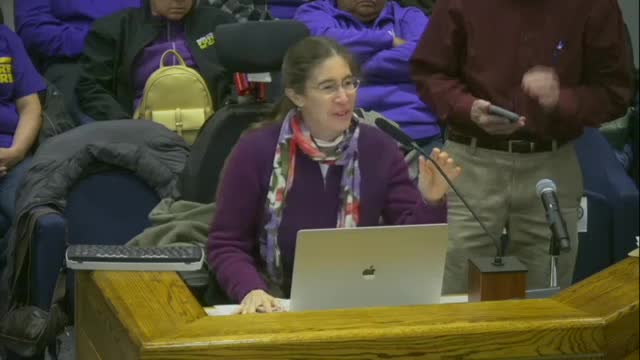
Yolo County IHSS advisory committee urges after‑hours Home Care Now hotline, virtual access and sustained funding

County health assessment finds high housing and financial stress among Yolo County farmworkers; board directs staff to pursue housing options
